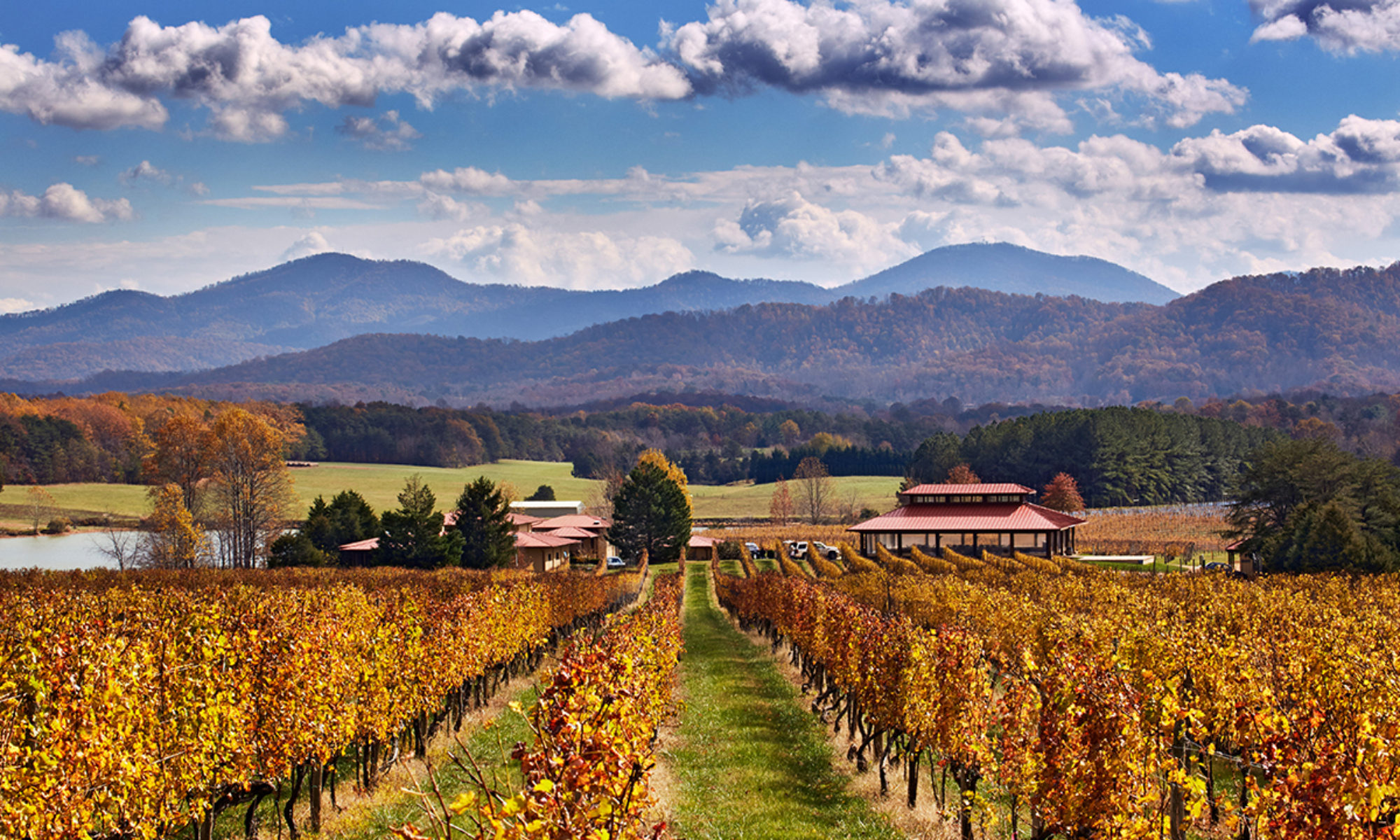Ankida Ridge Winery
A small, micro-boutique winery located in Amherst, Amherst County, high up in the Blue Ridge Mountains. At 1700 feet Ankida is one of the highest elevations of any Virginia winery. It can a bit of a (rewarding) challenge to make the climb to the winery, especially once past the “end of state maintenance” road sign. If a difficult uphill seems too much, there is an option: aside from the winery itself, Ankida also maintains a tasting room in Charlottesville. The winery was founded and is owned by the Vrooman family, originally from upstate New York by way of a veterinary practice in Virginia Beach, who bought the property in 1999, and planted vines in 2008. Second-generation Nathan Vrooman is the winemaker (as well as at Stinson Vineyards, which is owned by his wife’s family), with consulting support from Lucie Morton.
Wine. One of the Top 20 wineries in Virginia. Ankida Ridge’s 2022 Pinot Noir and 2023 Chardonnay were awarded gold medals at the 2025 Virginia Governor’s Cup state-wide annual wine competition, the second year in a row that both their Pinot Noir and Chardonnay received gold medals. Hugh Johnson, whose annual pocket wine guide is probably the best-selling wine book on the planet, gave Ankida Ridge a three-star rating in his 2020 guide. Like everyone else, Johnson notes that it’s all about the Pinot Noir, which Ankida seems to make better than anyone else in Virginia. The Financial Times’ star wine writer, who rarely mentions Virginia, called Ankida a “new and exciting producer.” Aside from the star Pinot Noir, Ankida plants Chardonnay and Gamay. Very small overall production, with 6 acres of vines and production of under 1,000 cases annually.
Setting. Three stars. This high-altitude spot was deservedly voted among Virginia’s 10 Most Beautiful Wineries. The Ankida Ridge Vineyards is named after an ancient word meaning ‘where heaven and earth join’, and the majesty of the estate does not disappoint. Wildlife and animals are embraced and encouraged here including hummingbirds, dogs, and sheep that graze on the vineyard floor.
Stories. Virginia Wine History: Lucie Morton. Ankida Ridge’s success can be in part tied to the Vroomans having turned for help to one of Virginia’s wine pioneers, Lucie Morton. Lucie can be argued to be “the pioneer” for the Virginia wine revival, her efforts going all the way back to 1973. As she told the tale in an interview with the Piedmont Virginian, she returned in 1973 to her family’s farm in King George’s County, Morland, unsure where to go next with her undergraduate degree in History at the University of Pennsylvania. Her father let her plant some non-Concord grapes on the farm, and away she went. After planting a mix of varieties, Lucie decided she wanted to learn more, and went to work the 1973 harvest in Bordeaux; she continued her French trip by becoming the first American woman to attend the viticulture course at Ecole Nationale Supérieure Agronomique in Montpellier. From there Lucie has gone on to become America’s foremost Ampelographer (formally the identification of vines, but in practice an Ampelographer is best described as a “vine whisperer”). She has a vine fungus named after her (Phaeoacremonium Mortoniae), has been named among the “20 Most Admired People in the North American Wine Industry,” won the 2018 Virginia Wineries Association’s Lifetime Achievement Award, and been called one of 100 “game changers” in the past century of winegrowing in North America by Wines & Vines magazine. Her high-profile clients include Black Ankle Vineyards and Sugarloaf Mountain Vineyard in Maryland, and Boxwood Winery in Middleburg. Lucie not only supports the “first generation” wine-making Vroomans at Ankida, but also the “second generation” at Stinson Vineyards in Crozet, owned by Dennis’ son Nathan.
